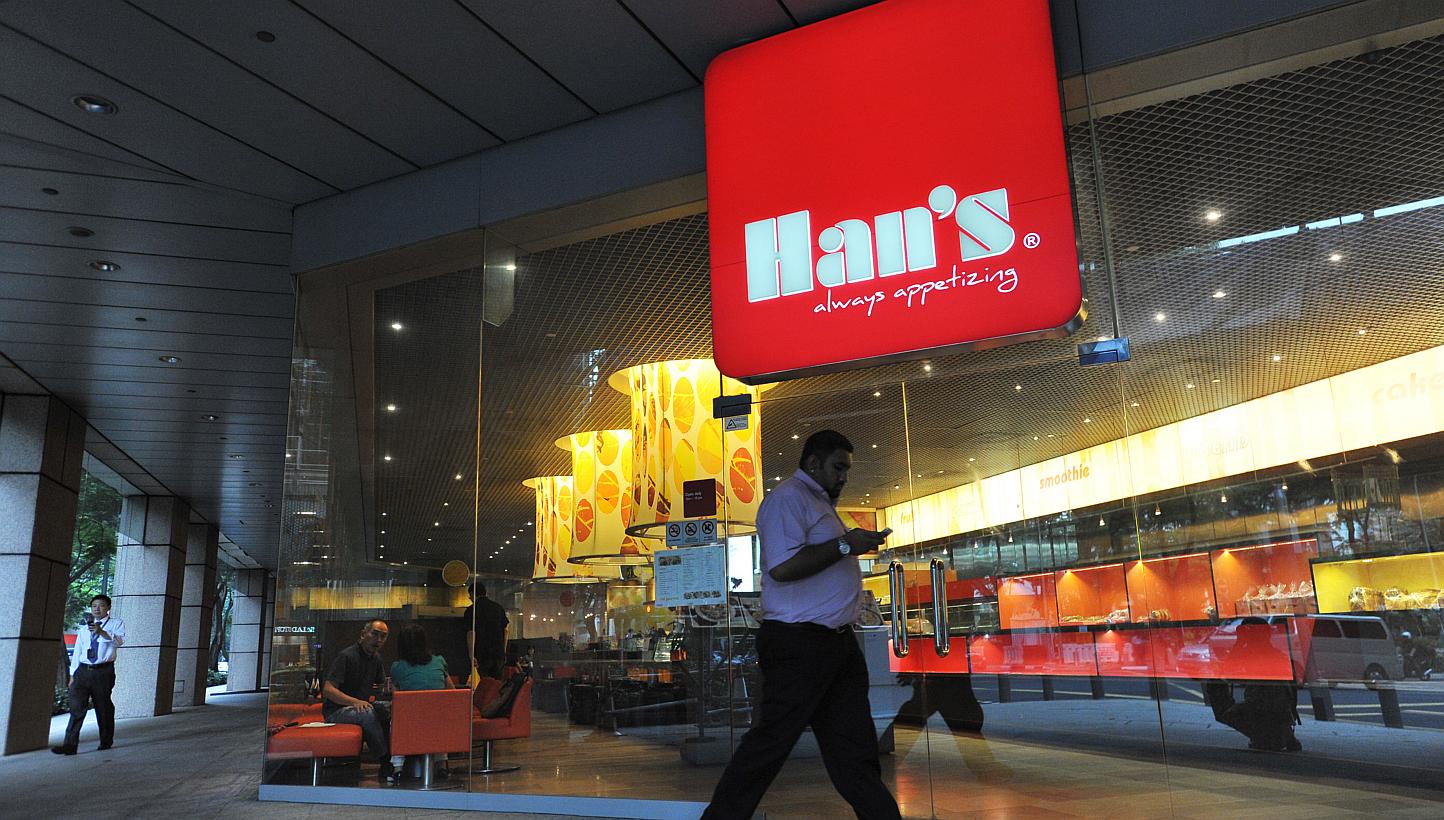Han's Cafe trademark spat: 5 other disputes over trademarks
Sign up now: Get ST's newsletters delivered to your inbox

Han's Cafe at Pickering Street. The food and beverage chain failed to stop high-end Japanese restaurant HAN Cuisine of Naniwa from using its namesake. -- PHOTO: ST FILE
SINGAPORE - Food and beverage chain Han's Cafe failed to stop high-end Japanese restaurant HAN Cuisine of Naniwa from using its namesake on Thursday.
Here are five previous cases involving trademarks:
1. Subway versus Subway Niche
The American owner of the sandwich giant lost its trademark infringement suit against local snack chain Subway Niche in 2012, after the High Court found no real evidence that the public would likely confuse the two, despite the similarity of Subway Niche's trademark to that of Subway's.
Subway Niche sole proprietor Lim Eng Wah set up his first stall in Wisma Atria selling local snacks in 1987.
Although Subway asserted that Subway Niche started selling sandwiches only in 2001, High Court judge Judith Prakash accepted that Mr Lim had started selling sandwiches and nonya kueh before Subway registered its trademarks in Singapore in 1989.
Subway was ordered to pay legal costs to Mr Lim.
2. Time Magazine versus Fortune Times
Last year, US-based media giant Time Inc lost its bid to invalidate Fortune Times, which was trademark registered here and assigned to China-based Li San Zhong in 2013.
Time Inc argued that the Fortune Times' trademark was confusingly similar to its own trademarks registered here earlier, as it combined two of its well-known trademarks.
Time is a weekly news magazine which has a global audience of more than 21 million, while business magazine Fortune has a global readership of nearly five million.
But Mr Li countered that the entire Fortune Times mark comprised a square with four Chinese characters and two English words, adding that the dominant part is the square with the Chinese characters.
3. St. Regis versus Park Regis
Sydney-based hotel chain Park Regis lost its right to register its trademark here in 2013 because it sounded similar to six-star hotel St Regis.
In 2008, StayWell Hospitality Group applied to register a trademark for Park Regis, the four-star hotel it opened in 2010 in Merchant Road. US-based Starwood Hotels and Resorts Worldwide, which owns St Regis, opposed the bid. Starwood had registered the St Regis mark in Singapore in 1995.
While the High Court ruled that the public was unlikely to be confused because the hotels marketed themselves differently, the appeals court disagreed.
Citing examples such as Hyatt Regency, Grand Hyatt and Park Hyatt, it said that it was likely the public could be led to believe that there was some link between both hotels.
4. Kenzo versus Kenzo Estate
When wine company Kenzo Estate looked to launch in Singapore in 2008, it encountered opposition from high-end clothes manufacturer and retailer Kenzo, on grounds that the suffix "Estate" did not make any visual difference to consumers.
The winemaker was eventually granted a trademark in 2013, after principal assistant registrar of trademarks See Tho Sok Yee held that the marks of the two brands were "visually and conceptually not similar".
She also noted that the nature of the goods and services offered made both parties very different, and that there were other unrelated businesses with the same name thriving in Singapore - such as Kenzo Design and Printing, Kenzo Interior and Design and Club de Kenzo.
The fashion house was ordered to pay costs to the winemaker.
5. Singapore's Ku De Ta versus Ku De Ta in Bali, Indonesia
Partners of the Bali beach club Ku De Ta failed to stop a Singapore club from using the name after they had their trademark suit dismissed by the High Court in 2013.
Justice Judith Prakash found that the Bali club did not have any goodwill in Singapore in 2004, because it was not well-known then, when the Ku De Ta trademark was registered here.
That meant that the owners of the Bali club could not prevent others from registering Ku De Ta as a trademark here.
The posh restaurant-bar-club on the rooftop of the iconic Marina Bay Sands hotel was allowed to keep its name.


